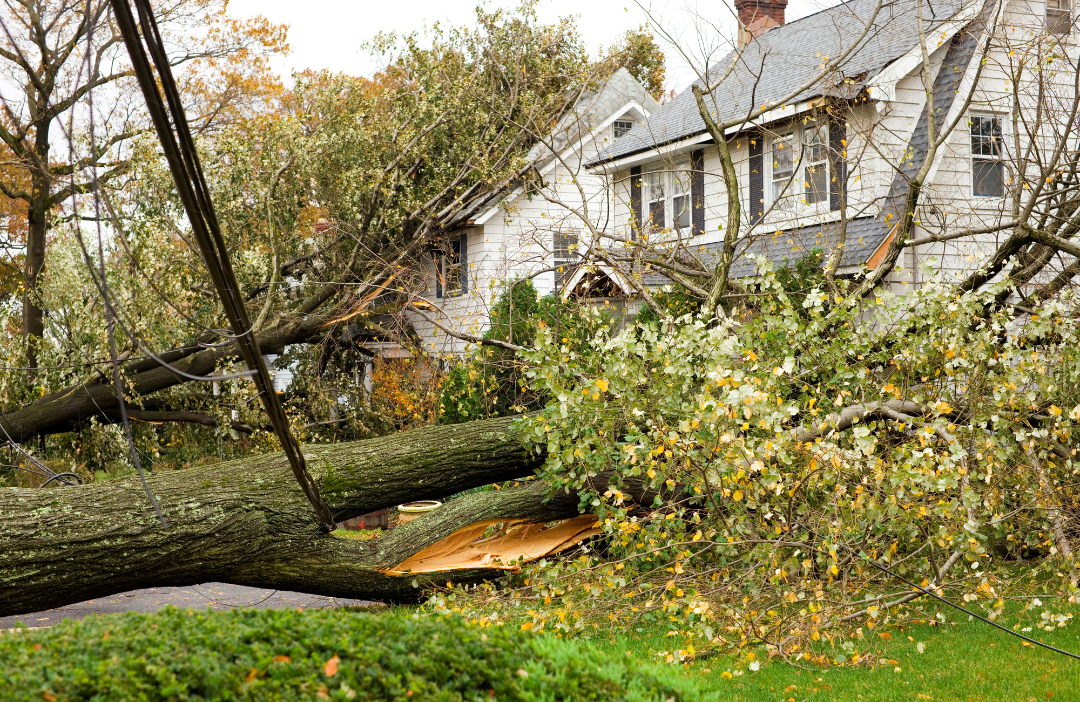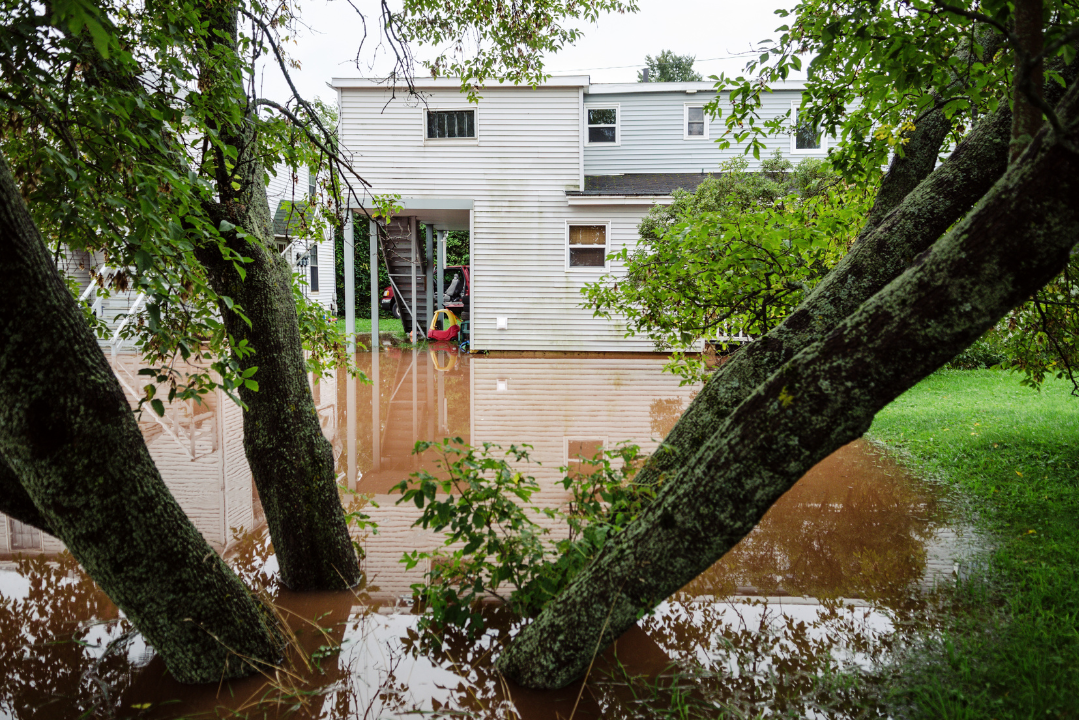Home insurance is an essential component of responsible homeownership. It provides financial protection against unforeseen events that can cause damage or loss to your property and assets. In this article, we will explore the role of home insurance and highlight its importance in safeguarding your investment.
Understanding Home Insurance
Home insurance, also known as homeowner's insurance, is a type of property insurance that provides coverage for losses and damages to your home and its contents. It offers financial protection against events such as fire, theft, vandalism, storms, and other perils specified in the policy. Home insurance typically consists of various types of coverage that work together to protect different aspects of your property.

Types of Home Insurance Coverage
1. Dwelling Coverage
Dwelling coverage protects the physical structure of your home, including the walls, roof, foundation, and attached structures such as garages or porches. It provides coverage for repairs or rebuilding costs in the event of covered perils. The coverage amount should reflect the estimated replacement cost of your home.
2. Personal Property Coverage
Personal property coverage insures your belongings inside the home, such as furniture, appliances, electronics, clothing, and other personal items. It helps reimburse the cost of repairing or replacing these items if they are damaged, destroyed, or stolen. It's important to document your belongings and their value to ensure adequate coverage.
3. Liability Coverage
Liability coverage protects you if someone is injured on your property or if you accidentally cause damage to someone else's property. It covers legal expenses and potential settlements or judgments. Liability coverage is crucial for safeguarding your assets and providing financial protection in case of lawsuits.
4. Additional Living Expenses Coverage
Additional living expenses (ALE) coverage covers the costs of temporary living arrangements if your home becomes uninhabitable due to a covered loss. It can include expenses for accommodation, meals, and other essential needs while your home is being repaired or rebuilt.

Importance of Home Insurance
Home insurance plays a vital role in protecting your property and assets. Here are some key reasons why home insurance is essential:
Financial Protection: Home insurance provides financial security by covering the cost of repairs or rebuilding in case of damage from covered perils. It helps you avoid significant out-of-pocket expenses that could strain your finances.
Property Protection: Some areas are prone to various risks, including severe weather events like storms and hurricanes. Home insurance ensures that your property is protected against these risks, allowing you to recover and rebuild in the aftermath of a disaster.
Personal Belongings Coverage: Your personal belongings hold significant value, both financially and sentimentally. Home insurance provides coverage for the replacement or repair of your possessions if they are damaged, destroyed, or stolen.
Liability Coverage: Accidents happen, and if someone is injured on your property or you cause damage to someone else's property, you could be held legally responsible. Liability coverage protects your assets and provides financial assistance in case of lawsuits or claims.
Peace of Mind: Knowing that you have adequate insurance coverage gives you peace of mind. It allows you to focus on enjoying your home and community without constantly worrying about potential risks and losses.

Factors Affecting Home Insurance Premiums
Several factors can influence the cost of your home insurance premiums. These include:
Location: The geographic location of your home, including its proximity to potential risks such as flood-prone areas or high-crime neighborhoods, can affect your premiums.
Property Value and Replacement Cost: The value of your property and the estimated cost to rebuild it impact your insurance premiums. Higher-value properties or those with expensive construction materials may have higher premiums.
Home Features and Safety Measures: The age of your home, its construction materials, security systems, and safety features like smoke detectors or fire alarms can influence your insurance rates.
Deductible Amount: The deductible is the amount you are responsible for paying out of pocket before your insurance coverage kicks in. Opting for a higher deductible can lower your premiums, but it means you'll have to pay more in the event of a claim.
Claims History: Your past claims history and the frequency of claims can affect your insurance premiums. Making multiple claims or having a history of high-value claims may result in higher premiums.
It's important to discuss these factors with your insurance provider to understand how they affect your specific situation and to find the most suitable coverage at an affordable price.

Choosing the Right Home Insurance Policy
When selecting a home insurance policy, consider the following:
Coverage Limits: Ensure that the coverage limits are sufficient to rebuild your home and replace your belongings in case of a total loss.
Additional Coverage: Assess whether you need additional coverage options, such as flood insurance or earthquake insurance, depending on the specific risks in your area.
Deductible: Determine the deductible amount that aligns with your financial capabilities and preferences.
Insurance Provider: Research different insurance providers, compare quotes, and consider their reputation, customer service, and financial stability.
Review and Update Regularly: Review your home insurance policy annually or whenever significant changes occur to your property or circumstances. Ensure that your coverage remains adequate and up to date.
Home insurance plays a vital role in protecting your property and assets. By providing financial security, safeguarding your belongings, offering liability coverage, and ensuring peace of mind, home insurance is an indispensable aspect of responsible homeownership. Understanding the types of coverage, factors affecting premiums, and choosing the right policy will help you secure comprehensive protection for your home.

FAQs
1. Is home insurance mandatory?
While home insurance is not legally required, it is highly recommended. Mortgage lenders often require borrowers to carry home insurance as a condition of the loan.
2. Will home insurance cover all types of damage or loss?
Home insurance policies have specific coverage limits and exclusions. It's essential to review your policy and understand what is covered and what is not. Additional coverage options may be available for risks not included in standard policies.
3. Can I adjust my coverage limits over time?
Yes, you can adjust your coverage limits as needed. It's important to regularly review your policy and update your coverage to ensure it aligns with your property's value and your changing needs.
4. How can I lower my home insurance premiums?
There are several ways to potentially lower your home insurance premiums, such as increasing your deductible, installing safety features, bundling your home insurance with other policies, or reviewing and comparing quotes from different insurance providers.
5. What should I do in the event of a claim?
In the event of damage or loss, contact your insurance provider as soon as possible to report the claim. Provide all necessary documentation, such as photographs or receipts, and cooperate fully throughout the claims process.
Posted by Infinity Admin on

Leave A Comment